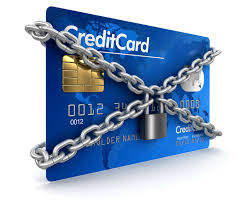 December 2023
December 2023
Shoppers began skipping crowds and clicking online to purchase holiday gifts years ago. More are doing so today.
Many hate shopping and there is nothing worse than holiday shopping. Traffic on the road, hunting for a parking space, the crush of people and long checkout lines. Fewer are prepared to “Shop till you drop” and have moved their shopping online.
Holiday is peak season for scammers who are pretty clever at making it hard for you to figure out what’s fake and what’s real. Here are some tips to protect yourself when shopping online.
Pay with a credit card
Debit cards can be viewed as a way to avoid getting into debt but come with few protections. Credit cards offer many more protections such as for goods or services not received and unauthorized charges. Your credit card company may even be prepared to temporarily withhold payment to vendors while they investigate a fraudulent purchase.
When paying with a debit card for a service or product never received, you must dispute the charge with your bank after it has been deducted from your account.
 Don’t be fooled by holiday gift card offers
Don’t be fooled by holiday gift card offers
Virtually all e-mails and texts offering a holiday gift card – usually in the amount of $50 – are fake. If you do think a communication is real, check the company web site or call customer service to inquire if it is legitimate.
Be concerned about anyone suggesting you pay for a purchase using a gift card. Scammers prefer you pay in this way on their sites. This is comparable to paying cash and virtually impossible to get your money back should you not receive your purchase.
Unrealistic shipping promises
Nothing is “free” when purchasing things including fast and free delivery. If shipping promises seem too good to be true, consider that it might arrive late or not at all. It can be safer to purchase elsewhere, wait longer and pay a little more.
Fake shipping text messages and e-mail
Never click on anything in a text or e-mail regardless of how appealing or legitimate it appears. Why risk exposing your electronic device and personal information to scammers who may want to have your purchase redirected to them. It is safer going to the retailer’s website where you can enter your order number or purchase code.
For tracking, go to the retailer or delivery service’s website before entering a tracking number.
Always look for a physical address
Legitimate online stores provide a physical address and working phone number in the contact section. The harder you have to work at finding this information, the greater the likelihood something about the site or business is suspect.
 Be their guest
Be their guest
Online shopping sites encourage you to create an online account to make a purchase. This requires providing personal information they can store on their database or resell to others. Providing this information to a fraudulent site makes you a target for future scams. Checking out as a guest is safer in that less information needs to be provided.
Scammers have become so clever that it’s often hard to figure out what’s fake and what’s real. They will play to your fears about inflation, delivery delays and certain hot items being out of stock.
Online shopping is not disappearing anytime soon. Take advantage of it but be smart when doing so.








